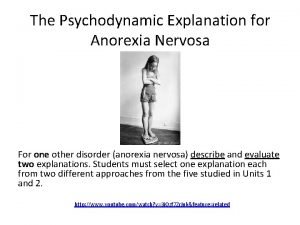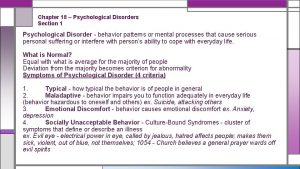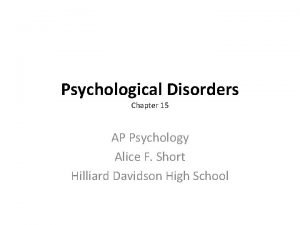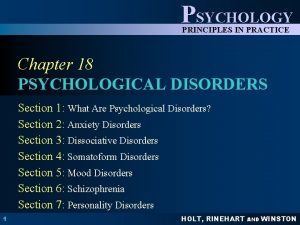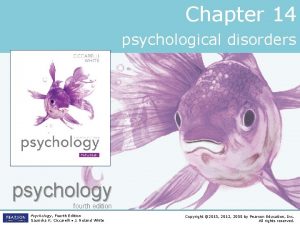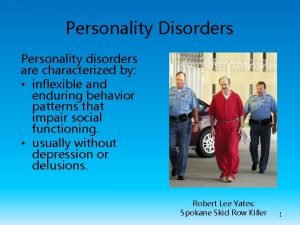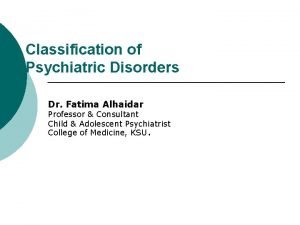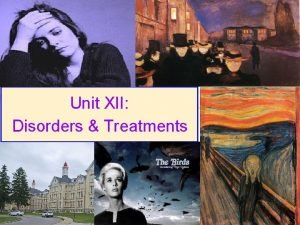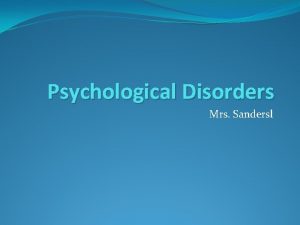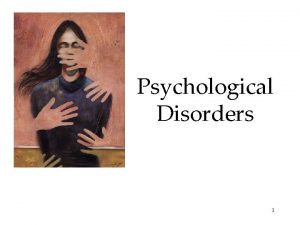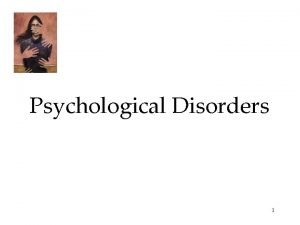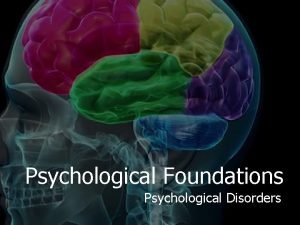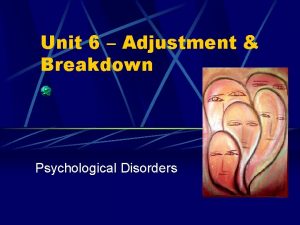Approaches to Therapy Treating Psychological Disorders Psychodynamic Therapy








- Slides: 8

Approaches to Therapy * Treating Psychological Disorders

Psychodynamic Therapy • • Psychoanalysis * The “talking cure” Lengthy, expensive Freud’s techniques include: Free association Dream analysis Transference Insight and interpretation • Psychoanalysis Video

Client (Person) Centered Therapy * • • • Humanistic Perspective Focus on Personal Growth Carl Roger’s Techniques include: Develop therapeutic alliance: 1) Therapist is genuine 2) Unconditional Positive Regard 3) Empathy with client Promote congruence between real and ideal self. Person Centered Therapy Video

Behavior Therapy* Based on principles of learning Focus on present, specific change desired Baseline measured; goals established. Use of associations, reinforcements, punishment, cues, extinction, shaping, etc. • Specific goals include: skills training, anxiety reduction, elimination of problem behavior. • Virtual reality therapy video • •

Cognitive Therapy • Includes cognitive behavior therapy (CBT) & Rational Emotive Behavior Therapy (RET or REBT) • Clients identify distorted or incorrect beliefs that are causing problems • Learn to think in a new, more logical ways, e. g. “I can survive” v. “I can’t live without him. ” • Reframe situations, e. g. “challenges” or “opportunities” instead of crises or disasters • Homework, short term; new patterns of thinking that can be used in future situations. • Cognitive Therapy Video

Evaluating & Comparing Therapies • Research supports the benefits of psychotherapy. • Specific type of therapy doesn’t matter much. • Cognitive Behavior Therapy has the most research support. • Good therapies share several general features: – They give people hope. – They help them think more carefully about themselves and about their relationships with others. – They provide a therapeutic alliance.

Biological Therapies * • Medical Model • Drugs (anti-anxiety, anti-depressants, antipsychotics, stimulants, mood stabilizers) • Often combined with talk therapies • If non-response to talk and drugs, may require: • ECT (electroconvulsive therapy) • Psychosurgery • Transcranial Magnetic Stimulation (TMS) Video

What do you think? • Which therapy do you think would best suit your personality? • What would you be willing to consider for a family member if your doctor advised? • Which therapies do you think are appropriate for children? • Which therapies should insurance pay for?
